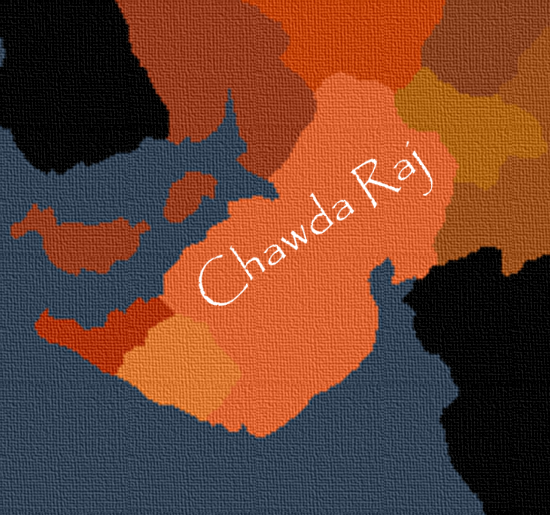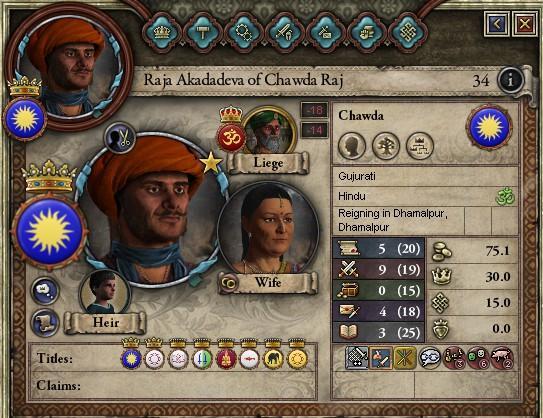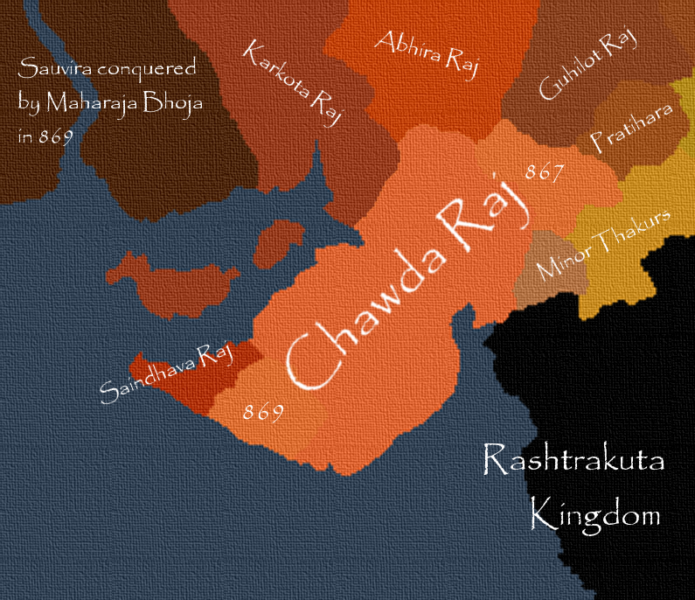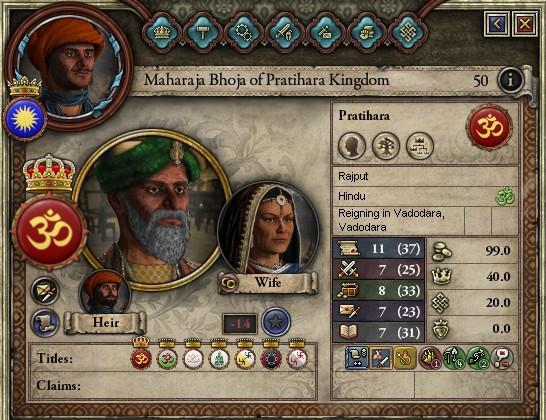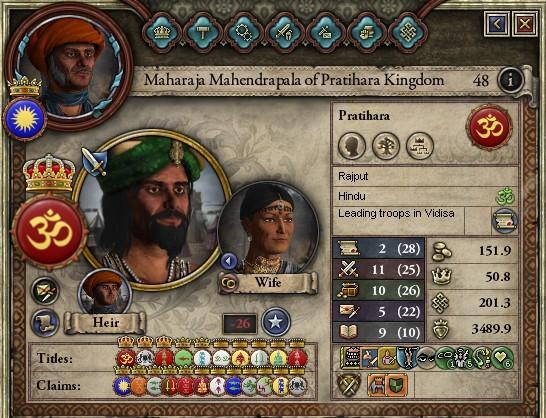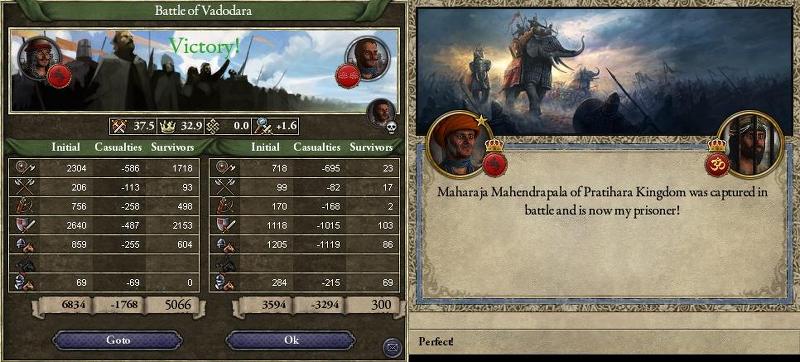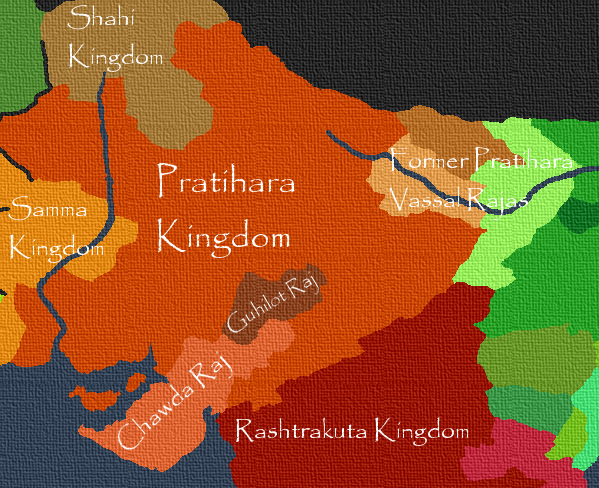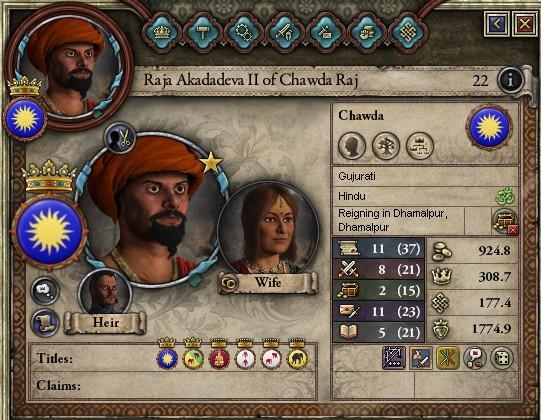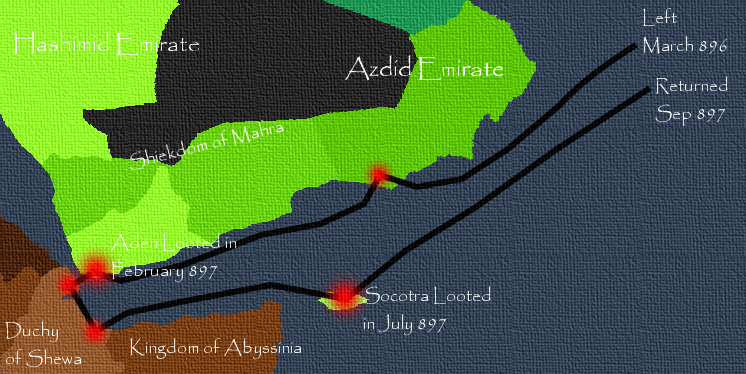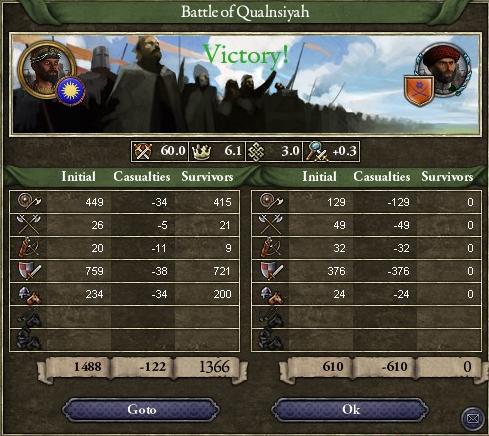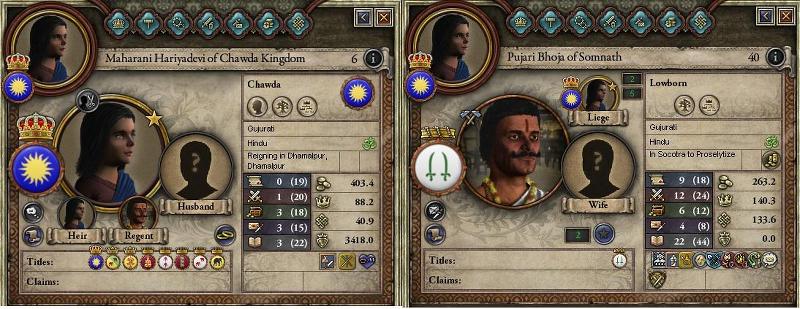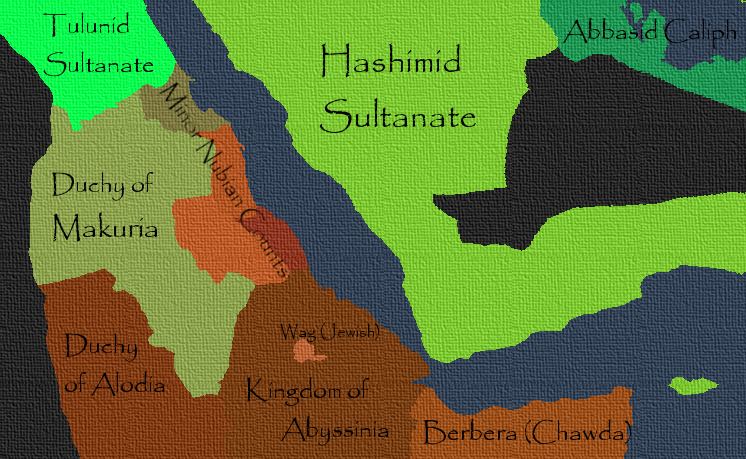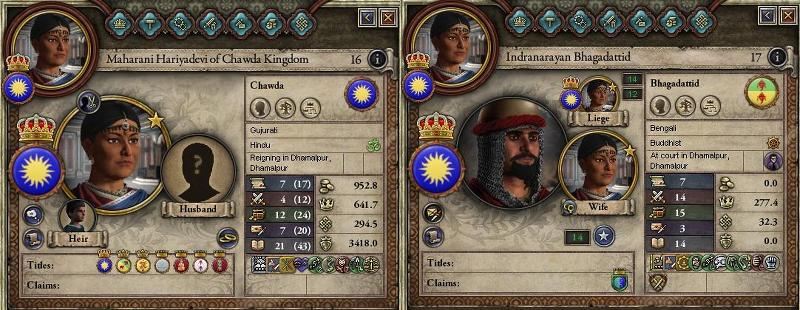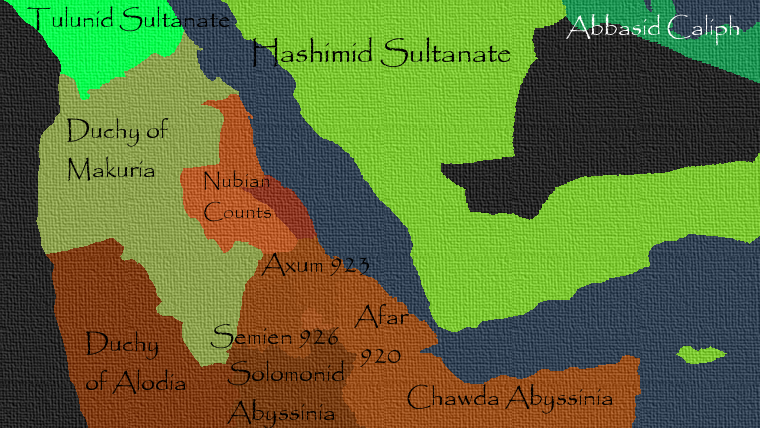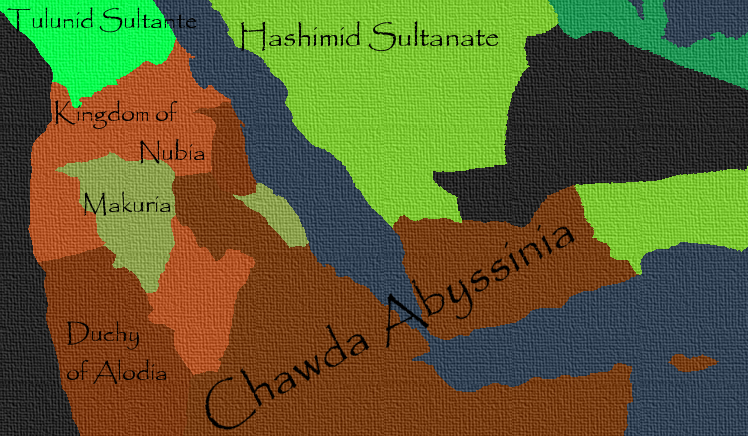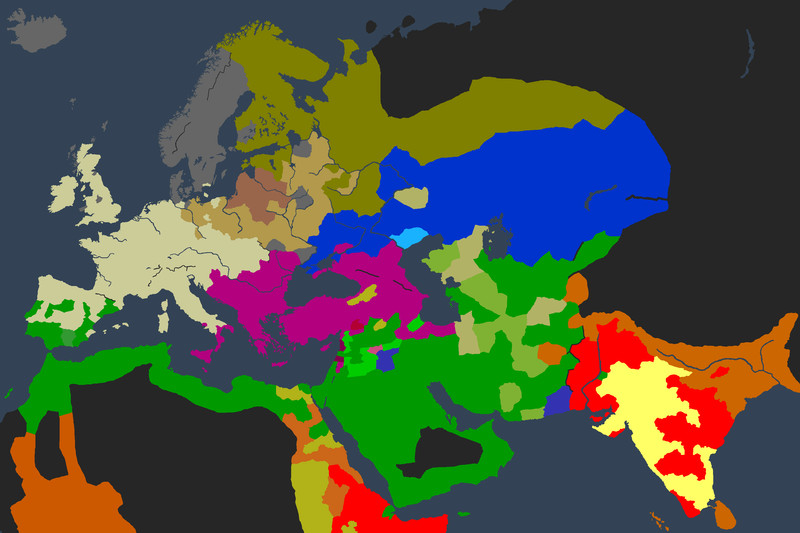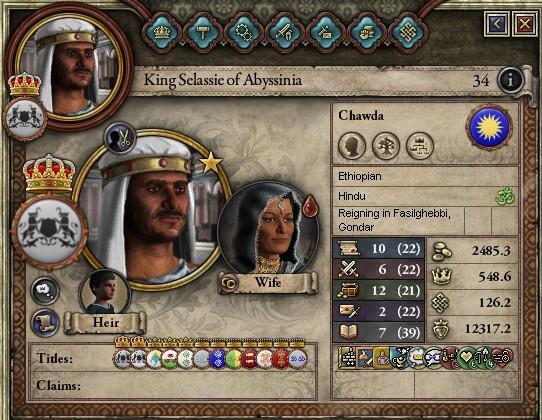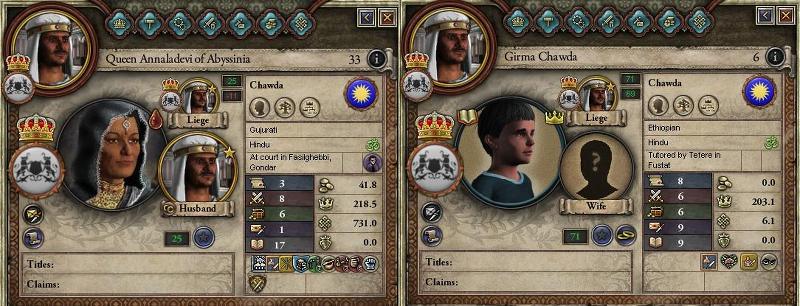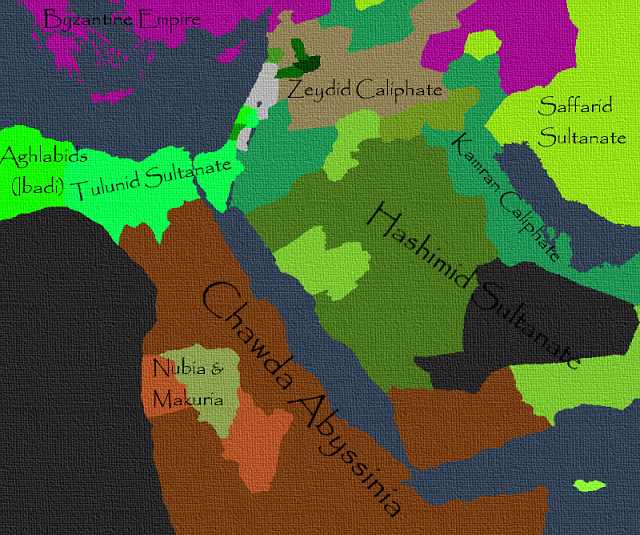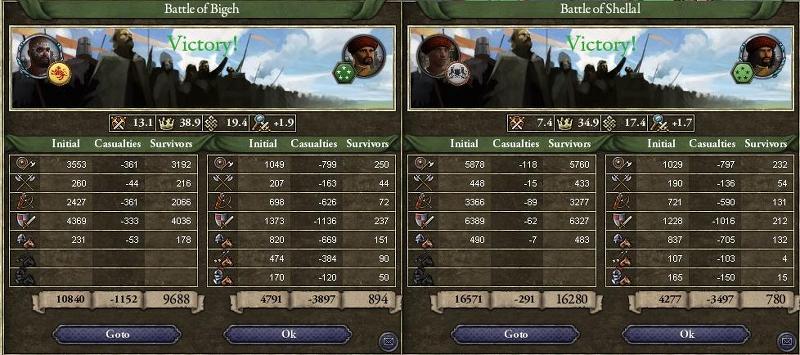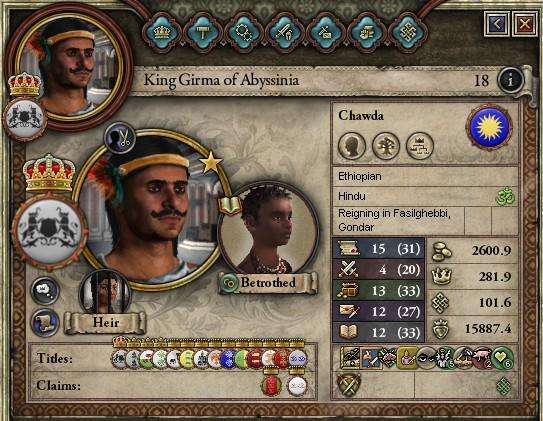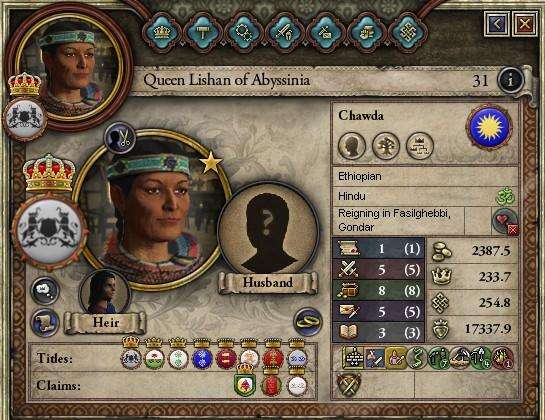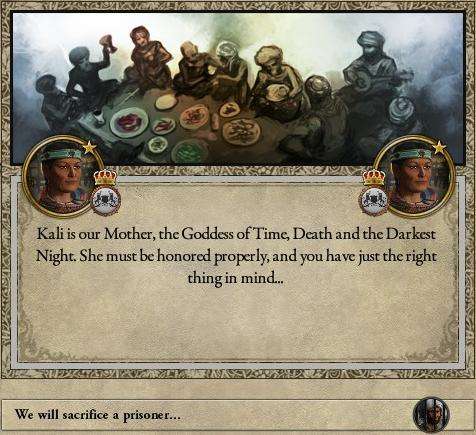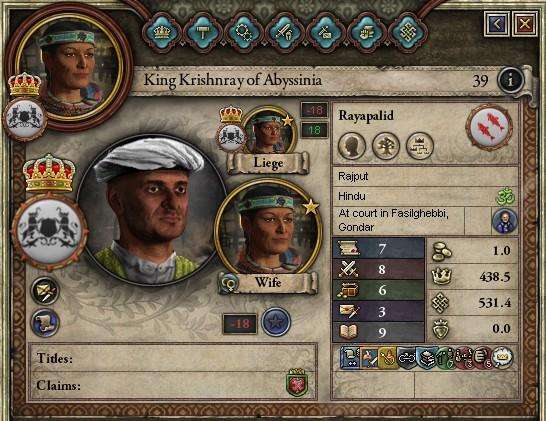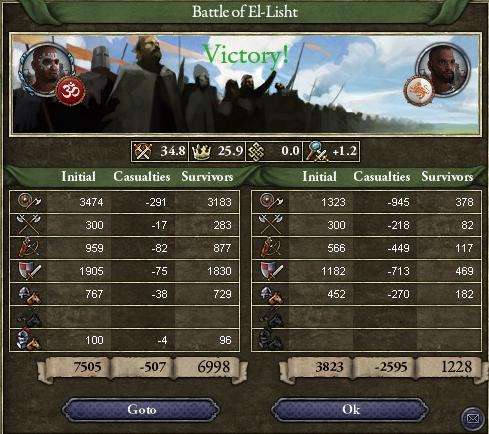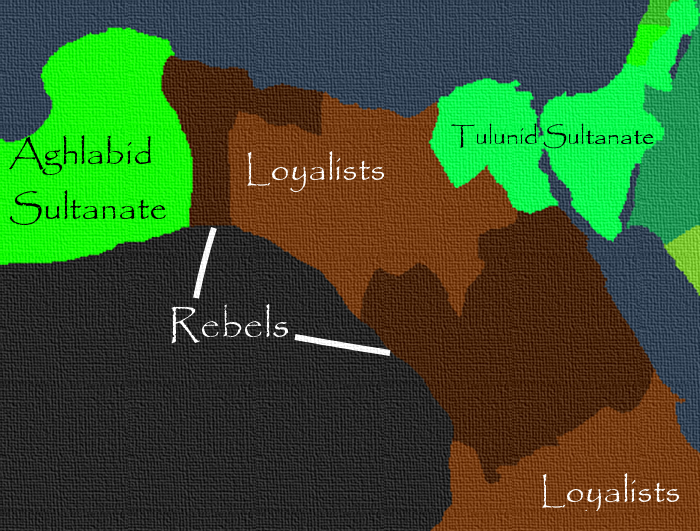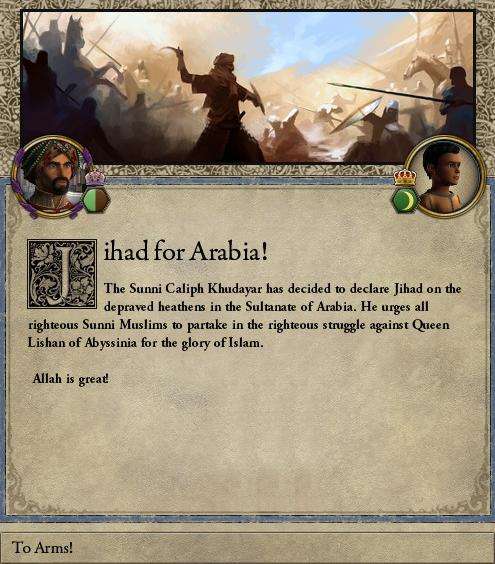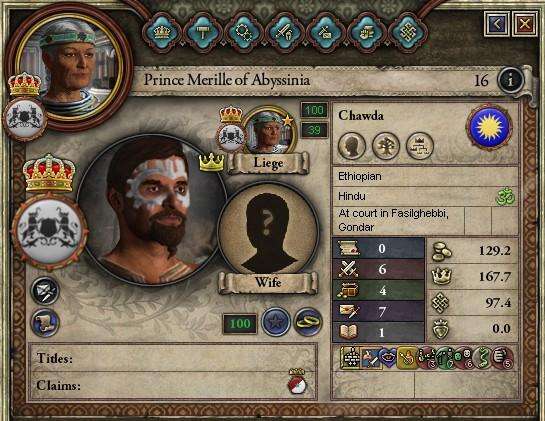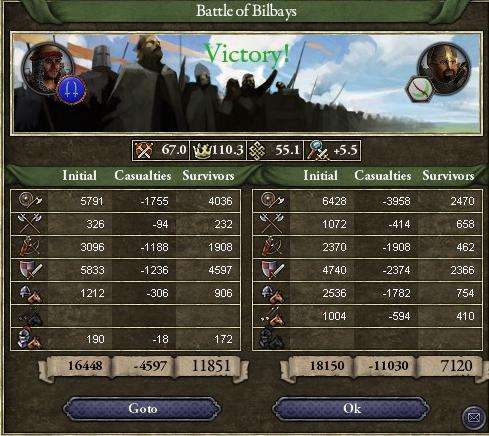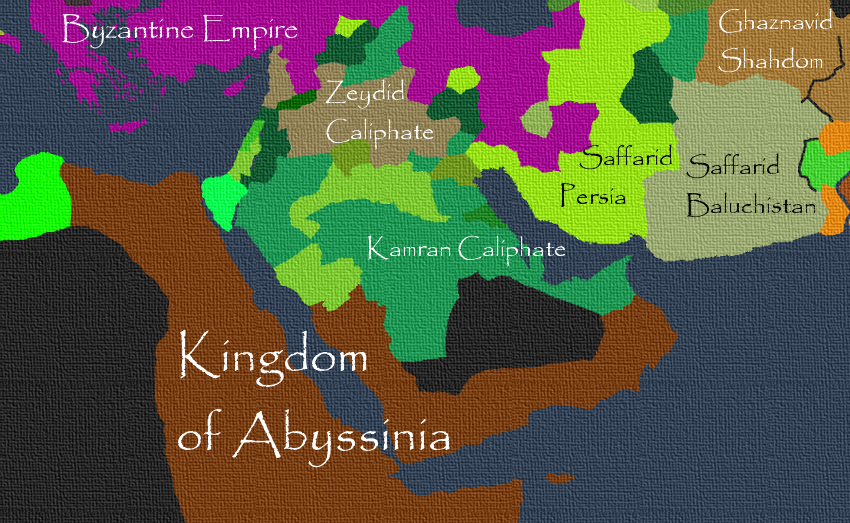@Forster : Welcome aboard!
Sorry for the unintended hiatus. This continues now!
The Reign of Maharaja Akadadeva of Gujarat
Lived 870-907
Raja of Anarrta and Saurashtra 893-907
Maharaja of Gujarat 895-907
December 895, Dhamalpur
The coronation ceremony had been quite extravagant; over a quarter of his treasury had been spent on it. Akadadeva Chawda was now no longer a mere Raja, but a Maharaja, proclaiming himself the rightful sovereign of Gujarat. To the north, Mahendrapala Pratihara did not recognize this, and still claimed this title.
Revolts by the Muslims in his western territories and a war with the Rashtrakuta Kingdom had prevented him from attacking the Chawda realm thus far. However, he believed it was only a matter of time before the Pratiharas tried to retake Gujarat, and their lands were still many times more vast. The new Maharaja looked out over the sea as he contemplated this; behind him was the emblem of his dynasty: the Sun hovering in the blue sky.
"The western infidels have attacked India many times," he thought to himself. "And my personal realm, as well; late in my father's reign, and then again last year. But we defeated them. Perhaps the time will come when we will invade their lands.
"After all, it is the destiny of the Sun to travel west."
May 900, Dhamalpur
Before Maharaja Akadadeva was a small man; his face was wrinkled and he had a look of imperturbable serenity on his face.
"I wanted a guru. Not half of one!" Akadadeva bluntly yelled.
"How rude! Judge me by my size, do you?" said the man.
"Yes."
"Deceiving, looks can be. Heard, I did, of your adventure to the west." In 896 and 897, Akadadeva had, following his father's example, went to explore (and raid) the western lands.
Maharaja Akadadeva's expedition to the Gulf of Aden
"And the purpose, what it was I wondered. Hmm?"
"Gold and land, of course," Akadadeva scowled. "Compared to my neighbours, the Pratihara and Rashtrakuta, I am a minor ruler. To secure my rule I need land; to take land I must conquer. That is why we are now planning another expedition; this time, we will take their land as well as their gold."
"Not yet, you can go! A claim you need. Go there I will, and get one!"
"Wait, what?" But the strange man had already left.
June 903, Socotra
"Greetings my liege! I trust you do not feel ill?"
"No, Acharya; my wounds healed months ago." Akadadeva was talking to his friend Acharya Vermid, who had accompanied him to this remote island. After his diminuitive chancellor had fabricated a claim, he had set off immediately with 1500 men. During the battle, Akadadeva had taken an arrow in his shoulder.
"Very good, sire. I have good news: the natives had succumbed to our siege, and their ruler has surrendered the island to us!"
"Excellent. With this island in our control, we will be able to expand into the mainland. As I promised you, this isle will be yours to govern. As for myself, I look forward to returning to my wife and daughters. I only hope they have not forgotten my voice now!" His two daughters had been born just two years previously: Hariyadevi to his wife Puppadevi, and Mahalakshmi to a concubine.
"Yes, you should return. Thank you for this opportunity, and may your journey home be safe!"
April 907, Dhamalpur
Hariyadevia Chawda, now six years old, was arguing with her mother Puppadevi. "I wwwwant to gggo, Mmmother! I'm b-b-b-b-bored, and I have not seen ffffather in fffforever!" Akadadeva had been waging war overseas, and had rarely been back since 904.
"Please, Hari. The barbaric western lands are no place for a young girl."
"Wwwwell I'm ggggoing to be the Mmmmmaharani someday, and thththen I can go wwwwwwherever I wwwwant!"
"I'm sorry darling, but I told you. I'm having another baby, and he's going to inherit. Besides, you would hardly be a good ruler if you keep stuttering!"
"Your highness!" Coming up to them was Pujari Bhoja, the Upadhaya of Gujarat, in charge of the religious affairs of the realm. "I bring word of your husband."
"Yes, what? Has he decided to come home, finally?"
"Ah... my lady, I'm afraid that is no longer possible. He has died of illness."
"Yyyyyyyes!!!" said the young Hariyadevi. "That means I'm in chchcharge now, rrrrrright?"
"Hari! Do you hear yourself? Your father is dead!" said her mother.
"I bbbbbarely knew him anyway!"
"I'm afraid the young Maharani is right, my lady." said Bhoja. "Your next child is not yet born, so the realm passes to her. Of course, she is much too young to rule at the moment... I would be honoured to act as her regent and guardian until her maturity, if you will."
"What?" said Puppadevi. "As her mother, I am surely a far better candidate!"
"My liege." said Bhoja, ignoring Puppadevi. "The newly conquered lands in the west are full of infidels... I was instructed by your father to attempt to convert them to our ways. If you were to accept me as your regent and guardian... you would of course have to come with me to these lands."
"Of course she could not! She is staying here with me!"
"Nnnnno mmmother! I'm going with thththis guy! Hhhhhe's cool, and has rrrred pppaint on his head!"
The Reign of Maharani Hariyadevi
Lived 900-963
Maharani of Gujarat 907-963
Queen of Abyssinia 943-963
Hariyadevi Chawda and her regent Bhoja
October 912, Berbera
Hariyadevi Chawda had lived the last five years of her life here in Berbera: almost half of her life now. Her mother had stayed behind in the capital, not wanting to go to far away barbaric lands.
Map of Abyssinia during the Bhoja regency
Bhoja had, meanwhile, taken over most of her powers. Shortly after they arrived, there was a battle in Tadjoura, which the Chawda armies narrowly won. Bhoja then made peace with the King of Abyssinia, taking control of the Raj of Berbera.
But to the north, the Hashimid Sultan of Arabia had demanded that they relinquish control of the isle of Socotra. With Arab troops occuping the island and fortified against a landing, he had no choice but to surrender. Hariyadevi, on hearing this, was angry that he had lost her territory, but was soon mollified by his explanation that it was just a small desolate speck of land.
This began a period of peace, as more soldiers were recruited after the losses in the war against Abyssinia. Hariyadevi spent much of her time in lessons to prepare for her reign, but had begun to sneak out of the castle. She made friends with some of the native children, learning their language.
One day, she heard a rumour that the country was at war, back in the homeland. To see whether this was true, she snuck into Bhoja's rooms one day while he was out preaching. There, she found records of a declaration of war by the Rashtrakutas, and more recently an offer for peace with them, giving up the Thikana of Dasapura! One more document showed the reversal of the reforms her father had made to centralize the realm, leaving her vassals once more practically autonomous.
"Of course I surrendered... remember, as your regent, I am in charge of all matters of state." Bhoja said when she confronted him later.
"Bbbbut why? Cccan't I have you executed for tttreason?" she yelled in a rage.
"Hmm. I think not. It was just one minor territory on the edge of my--I mean--your realm. It is not even traditionally considered Gujarati. It was hardly worth spending the entire treasury on mercenaries to oppose one of the largest kingdoms in India."
"And wwwwwhat about the laws!"
"My dear, your father, when he made those laws, was taking away important traditional rights of the nobles. In fact you should be thanking me... if such a thing were to continue, I'm sure the realm would fall appart in a civil war."
She glared at him. He kept his face completely neutral. "If you truely feel so strongly you can always reenact his reforms once you take over. But for now, I am in charge. Not you."
October 916, Dhamalpur
The ceremony was especially grand, given that it was in fact two ceremonies. Hariyadevi's coronation was immediately followed by her marriage to Indranarayan Bhagadattid, a Buddhist noble from Bengal. He was, in fact, not an especially highly ranked noble: Hariyadevi had insisted on a matrilineal marriage, so most of the nobility of India had refused. But nevertheless, Indranarayan was intelligent and a capable warrior: Hariyadevi had promised to give command of the army to him.
Maharani Hariyadevi and her husband, Indranarayan
Her first act as Maharani, of course, was to reinstate the laws that were repealed by Bhoja. He was much less powerful now, and furthermore his age was exacting its toll on him. None expected him to last much longer. "And gggood riddance," she muttered to herself.
"What was that, my lady?" her new husband Indranarayan asked.
"Oh, nnothing. Now, as you are my new mmmarshal, I wwwish for your opinion on my plans for ccconquest."
"Yes. While we are smaller than our neighbours, I think that if we hire mercenaries, we should be able to defeat even the Pratihara or Rashtrakuta-"
"No, I am not attacking thththem. Perhaps you have hhheard that my father conquered some land in the wwwwest. I actually grew up ththere. I intend to expand this ttterritory."
"Oh. I see." Indranarayan looked thoughtful. "I'm not sure we have enough ships to transport an army large enough."
"In fffact, my ships are cccurrently being used to rraid the Red Sea. They should return soon. The rrreal problem is our army. We ddefeated them before, but now their King has completely united their llands."
"In that case, I have a suggestion. I have a friend, by the name of Varshapala, who has organised a large army called the Followers of Arjuna. They are dedicated to fighting infidels: with his army, you surely could not fail."
March 929, Berbera
"What shall you name her, my lady?" asked her guru, Jendraraja. Hariyadevi's fourth child had been born days prior, and by the principle of ultimogeniture, he was now the heir.
"Not nnow, tell me how the wwar is." Over the last decade, her husband Indranarayan and the Followers of Arjuna had waged several wars against the Abyssinians.
"Our armies have met at Gereger, near their capital of Gondar. I expect the battle will be easily won." All of the battles had: the Followers of Arjuna had attracted thousands of Hindu warriors. About half of Abyssinia was now under Chawda control.
Chawda conquests during the 920's
"And there are nno other ccomplications?" Some years earlier, while Axum was being conquered, a wandering Turk and his host had attempted to carve out a dominion in her territory: though the Turk's army was slightly bigger, they were caught crossing the straight of Mandeb, and were slaughtered.
"Not this time. So, what of the child?" Hariyadevi's first had been a daughter, Mayanalladevi. Her second and third were sons: Akadadeva and Shurapala.
"I've decided. His nname is Selassie."
"Um... my lady, that is not an Indian name."
"No. It is Ethiopian. I believe that this is the ttrue home of the Chawda nnow. Our land hhere is larger than Gujarat is. And the natives have bbbegun to accept the Hindu way. Ssoon, their capital shall ffall, and once I have taken all of this lland... it will truly be my home."
September 943, Gondar
The conquest was complete.
In an elaborate ceremony here in the traditional capital of Abyssinia, Hariyadevi was crowned the first Hindu Queen of Abyssinia.
The Solomonid Kings had been driven out of the last corner of the land after another series of wars. Gojjam was taken in 931 followed by the rebelling Duchy of Shewa in 932. A period of truce then began, though not of peace: twice, groups of Christians rebelled aginst their Hindu overlady, but were crushed. After the truce ended, the last Solomonid lands were taken.
"Mom!" Young Selassie was now 14. "I get it, you and dad conquered lots of lands. But when do I get to?"
Hariyadevi had had no other children, so Selassie was still the heir. He was as brave as his father, though (and she hated to admit it) he didn't have half the ability in combat.
"At least let me have some land of my own! I mean, Akadadeva and Shurapala both got some."
"Vvery well, Selassie. You can hhave Berbera."
"What? You mean that empty desert place in the east?"
"It's nnot just a ddesert! It's also the pplace where I grew up, and was taught by a guy with red paint on his head who took way too much power as a regent!"
"Ugh, fine! Whatever, mom."
July 959, Gondar
"My lliege! I mean, liege! The Arabs are attacking!" a messenger came up to her.
"Wwhat? Why?" Hariyadevi asked.
"Well, you did conquer Sana'a."
"Oh yeah. Well they sstarted it by cconquering Socotra about ffifty years ago."
"Also, the christians are rebelling."
"They're still hhere? I thought we wwere all Hindu nnow."
"Not quite, my liege. Also, the muslims in Sana'a decided to rebel as well."
"Ddang. Hey hhoney!" Hariyadevi called upstairs, to her husband.
"What?" he replied.
"I nneed you to command the aarmies!"
"Against who?"
"Mmuslims, rrebels, and mmuslim rrebels."
"Ugh, fine! Whatever, honey."
November 962, Gondar
"Hey, I'm back. I won the wars," said Indranarayan.
"Yyes! I am aawesome. Llook at all this land I cconquered dduring my life."
Look at all this land she conquered during her life.
"Well, it was me leading the armies-"
"Hhush, the lady is ttalking. I'm glad I got to rule instead of my brother. Ggood thing my ddad ddied when he did!"
"Um, yes-"
"Anyway. I'm ggetting kind of old. My grandfather died around this age you know. So if you should outlive mme, there's something you need to tell our sson, Selassie."
"Yes, my dear."
"Tell him... that I was the best Chawda ruler ever, and I'd like to see him ttry to do better than this!"
To be continued...
~~~~~~~~~~~~~~~~~~~~~~~~~~~
Bonus picture: the religious mapmode
Note the pretty red in Abyssinia!
